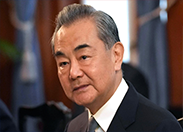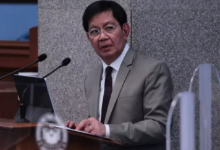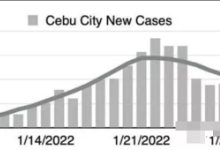p>
Summit for Democracy' a pretense for imposing hegemony?
By John Lee
(ECNS) -- U.S. President Joe Biden has announced that he will host a virtual "Summit for Democracy" on Dec. 9 and 10. The Biden Administration has invited 110 countries and regions to join the summit, claiming to promote democracy yet, in essence, it is trying to impose its "democratic model" and maintain hegemony。
The event is an attempt to "unify democratic governments in opposition to China" and counter China's "economic, political and military influence," said the Washington Post。
The invitation list reveals its ambition to expand its strategic interests. In Asia, for example, U.S. allies Japan and South Korea were invited, while Thailand, Vietnam and Singapore were not. Of the countries in the Middle East, only Israel and Iraq were invited。
The issues of “What is democracy?" and “Whether a country is democratic or not" shouldn't be decided and judged by a certain country. Rather, it should be done by the people who live there。
The majority of young Americans believe that democracy in their country is either failing or in trouble, according to a Harvard Kennedy School's Institute of Politics poll on Wednesday。
The United States has remained the world's sole superpower since the end of the Cold War. Its global leadership has gradually declined since the Sept. 11 attacks in 2001. The reputation of the U.S. model of democracy has also dropped dramatically due to its ineffective response to the COVID-19 pandemic。
In the Global Attitudes Survey this spring, Pew surveyed 18,850 adults in 17 advanced economies about their views of American society and politics. Few people view American democracy as an example for the rest of the world to follow, its survey shows. Outside the U.S., 57 percent said that American democracy “has not been a good example for democracy in recent years。” An additional 23 percent said the United States has never been a good example for democracy。
The figure is as high as in the U.S., where about 72 percent of American respondents said their country has not been a good example for democracy in recent years。
U.S. bipartisanship appears democratic, yet Democrats and Republicans are always at odds and try to drag the other down even when there is need for cooperation. For example, when the COVID-19 pandemic broke out they squabbled over various issues, including whether a mask mandate was necessary, missing the best time to contain the pandemic and creating an out-of-control situation。
By the end of November, the number of deaths caused by COVID-19 in the U.S. had passed 770,000, making it the country with the highest number of COVID-19 deaths in the world。
In the face of doubts concerning its global leadership, the U.S. government did not reflect on its own shortcomings, but tried to woo followers and subdue countries with different types of governance in the name of promoting "democracy。”
The world is a diverse planet and democracy is not a dogma. There cannot be only one model of democracy, and it's unrealistic to impose one model on countries with different cultural traditions, histories, and national conditions。
It is a "hegemonic" mentality to call a country "undemocratic" if it does not conform to this model。
What is urgently needed today is neither a "summit for democracy" nor a "coalition of democracies。” Instead, the focus should be on mutual understanding, inclusiveness, and respect for each country's own choices。
div>

















